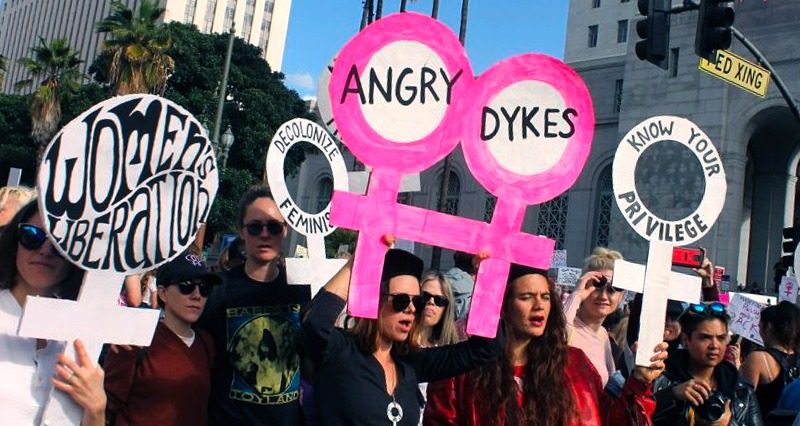Last month, California Governor Jerry Brown signed Senate Bill 826 into law. The legislation mandates that by the end of 2021, all publicly traded companies headquartered in California must include a minimum of two women on five-member boards of directors and a minimum of three women on boards with six or more members.
The governor admitted that the national uproar over Judge Brett Kavanaugh’s nomination to the Supreme Court of the United States (and media-fanned moral panic regarding accusations of sexual assault and binge-drinking in his youth) influenced his decision. As he explains in a letter to his state’s senate, dated September 30:
“There have been numerous objections to this bill and serious legal concerns have been raised. I don’t minimize the potential flaws that indeed may prove fatal to its ultimate implementation. Nevertheless, recent events in Washington, DC – and beyond – make it crystal clear that many are not getting the message.”
Toni Atkins, president pro tempore of California’s state senate, insist that the legislation “will open the door to… talented women and position California as a national leader in gender equality.”
Equality. The nerve! — that gender-quotas in the boardrooms and millionaires’ clubs of the west should be termed “equality,” when most of us (men and women both) have to struggle from paycheck to meager paycheck as anxiety, boredom, fear and unrealisable dreams keep daily watch over us.
The whole gesture is faintly embarrassing. Its first motive is to indulge the myopic agenda of too many venal middle-class women. Its deeper motive (like so much of what styles itself as “progressive,” these days) is to keep capitalism intact beneath a veneer of “radical” hype; to keep people out of the class struggle in favor of for example – to recall a Democratic operative I met at a bar a few weeks ago – working with “good rich people” to spread LGBTQ inclusivity (gay marriage, pride parades, etc.) to every corner of the Earth — with sanctions, with drone-strikes, or however is necessary.
I am reminded of my outrage at learning that Jeff Bezos, the world’s wealthiest human being; a man whose employees earn proverbial peanuts and have infamously had to avail themselves of food stamps and Medicaid, was awarded the Human Rights Campaign’s 2017 Equality Award — on account of Amazon’s “long history of supporting LGBTQ rights.” As if a living wage and a decent share of the fruits of one’s labor were less a matter of “human rights” than the commitment to a certain ratio of queer professionals at every level of the corporate hierarchy!
It really is brilliant beyond words, the genius of capital: It co-opts the vocabulary of progress, militancy, organizing and struggle to turn everyone of only a little education against one another instead of the system itself; to orchestrate whole generations of cultural upheaval. By offering us the simulacrum of revolutionary panic, mammon hopes to forever postpone the advent of revolution. That there is so much delight at the prospect of rendering the soul-destroying rat race of corporate life more “inclusive,” which – in the ultimate conclusion – means accelerating the enfeeblement of the family, sovereign and organic family life instead of strengthening it, as might be done through lengthening the weekend and boosting family leave, illustrates the devilish efficacy of mammon’s fake “progressive” game. Were Jeff Bezos, who earns $11,000,000 per hour, a woman instead of a man, can you imagine the ecstatic howl from the lungs and lips of certain feminists, the moment that Bezos became the richest person in the world?
You might remember how countless ordinary people donated to a crowdfunding campaign not long ago, the goal of which was to transform reality TV debutante Kylie Jenner (whose net worth was already in the area of $900 million) into the world’s youngest billionaire.
When MSNBC’s Mika Brzezinski, of “Morning Joe” fame, speaks on the theme of women’s empowerment, she always seems to tell us (albeit not in so many words) that if professional women become pushier and more vocally ambitious, they are certain to find success in life (read: what the likes of Morning Mika regard as “success in life”) — as if women too can climb the obnoxious corporate ladder as high as it goes only if they interrupt co-workers more often and smile less.
Whether the grotesque post-feminine type of woman suggested by the above philosophy will ever overcome sexism and close the infamous pay-gap, in the United States or anywhere else, remains an open question. It’s almost charmingly circular: If we cannot achieve a balance of soulless executive females with soulless executive males, equal in responsibility and salary – it means there’s still too much sexism. That is all!
Keep bashing away with your hammer and if you don’t see a dead “patriarchy” bleeding from its crushed head, crumpled on the floor at your feet – then said patriarchy must be alive and lurking in the shadows behind everything that stands in the way of women’s emancipation — as well as that of any number of “marginalized identities” across the board (as defined by useful academics, ideologues, “journalists,” trendy activists, and legions of teenagers). Because if ‘the patriarchy” is as some of us suppose, a tautology or boogieman; a conceptual vehicle for social justice speech and feminist or nominally feminist agendas – then it isn’t very hard to attribute all the world’s evils to it, and not merely to those related to women’s empowerment and disempowerment.
Some would have us believe that the subtleties of language itself are an obstacle to the inclusion of women in professional life.
In the United States, we tend to say “server” (instead of the rapidly fading waiter or waitress). We tend to refer to men and women alike, should they aspire to poetry, as “poets” (poetess ringing as archaic and even condescending, today). We wouldn’t call a female doctor a doctoress or an author an authoress. You might yet occasionally see a female comedian termed comedienne and it’s still acceptable to distinguish actor from actress.
It is different in Germany — when it comes to the names of occupations, a strict gender-based distinction is still observed. And when job-openings are advertised, employers tend to favor the male form of the word, even when applicants of either gender are welcome to apply.
But not “welcome” enough, apparently: Luise Pusch, a German linguist whose focus is feminist speech, told USA Today earlier this year that it is because of the language’s gendered (even hyper-gendered) treatment of the professions that “girls often have a hard time imagining that they’re also being sought out” and are “not only being shut out grammatically, but also through their own image of this profession.”
The insinuation is that their pay-gap will close if only Germans will corrupt their language to spoon-feed girls and women the prospect of career-centered “success” within the narrowing frame of what the present regards as “a living” —an insult to women and girls, whatever they aspire to become and to whatever heights. It should, on their behalf, offend any and every friend to girls and women.
Meddlers should take a tip from Chancellor Angela Merkel. When it was proposed that Germany tweak its national anthem by changing, for example, Vaterland (“fatherland”) to Heimatland (“homeland”), a spokesman for her office made clear earlier this year that Merkel “is very happy with our nice national anthem as it is in its traditional form and doesn’t see any need for change.”
In February of this year, the third line of Canada’s national anthem was officially changed from “True patriot love in all thy sons command” to “True patriot love in all of us command.”
Opponents who called it a work of vandalism against the song itself were informed that the change brings the song closer to an earlier and gender-inclusive version of the line. They replied that if changing the “thy sons” lyric were really necessary, go with a word-for-word reversion to the earlier “thou dost in us command” for tradition’s sake. Don’t overlook the fact that the “all of us” version is an imperative statement as much as the “thy sons” version, while the earlier “dost thou” version is mere description. If it’s a paradox that we are commanding Canada to command us, then call it the paradox of patriotism itself.
Other opponents argued that “all thy sons” really means “sons and daughters of Canada.” It isn’t a leap to suppose that the “all of us” version subtly promotes immigration without limit, cosmopolitanism, globalism, demographic displacement, etc. But if people were really able to be convinced that “sons” were a gender-neutral term, then they’d be able to be convinced that so called universal “he” is still acceptable in literature. Germany’s recent experience suggests that they are not.
Finally, and not to be “that guy,” but note that the very phrase “patriot love” is very much gendered. “Patriotism” comes from the Latin word patria, meaning “fatherland,” and is the etymological cousin of the dreaded patriarchy. Their relation hardly needs to be argued and you’ll not find anyone daring to refute it. Don’t tell the Canadians!









Leave a Reply